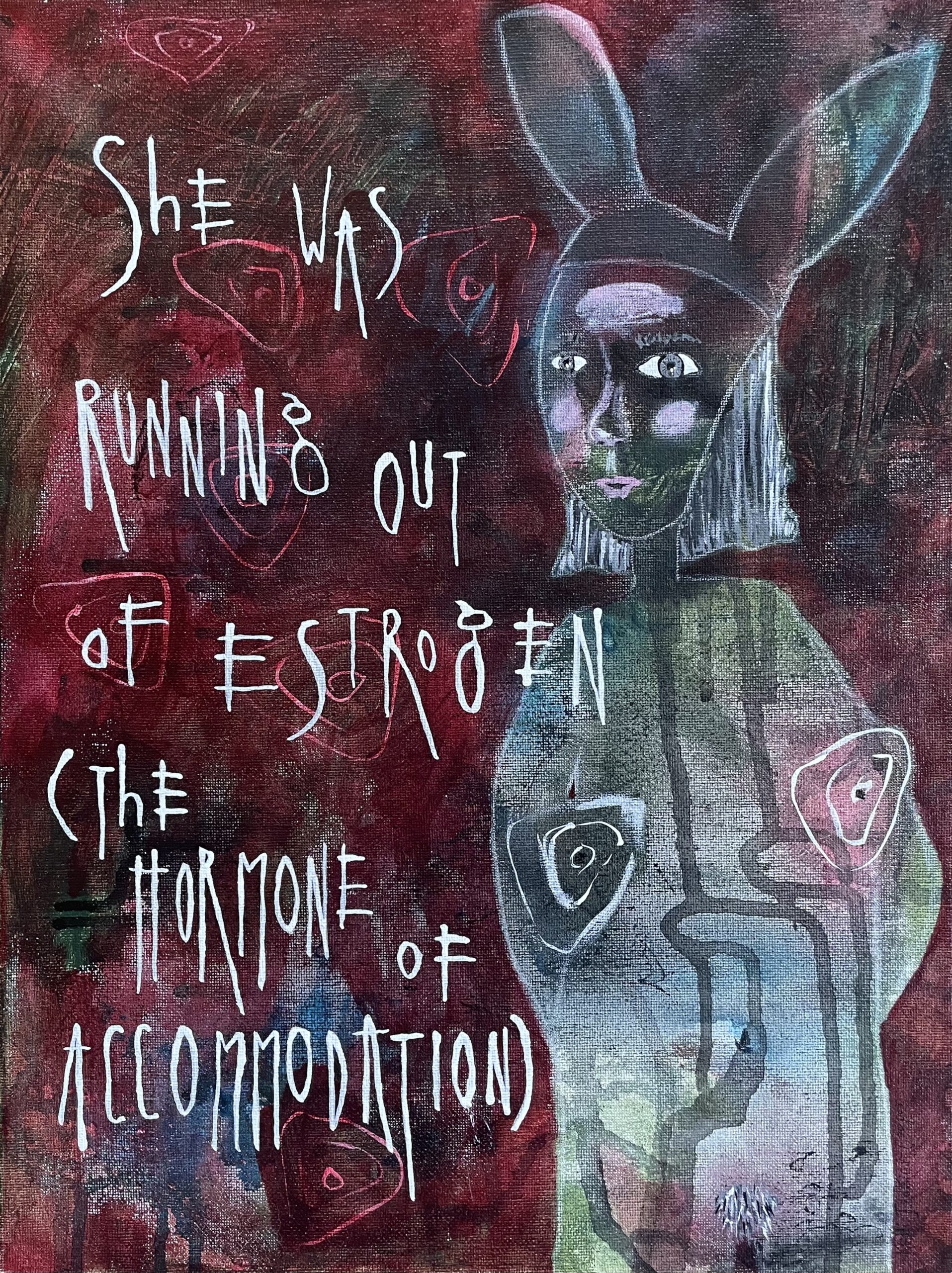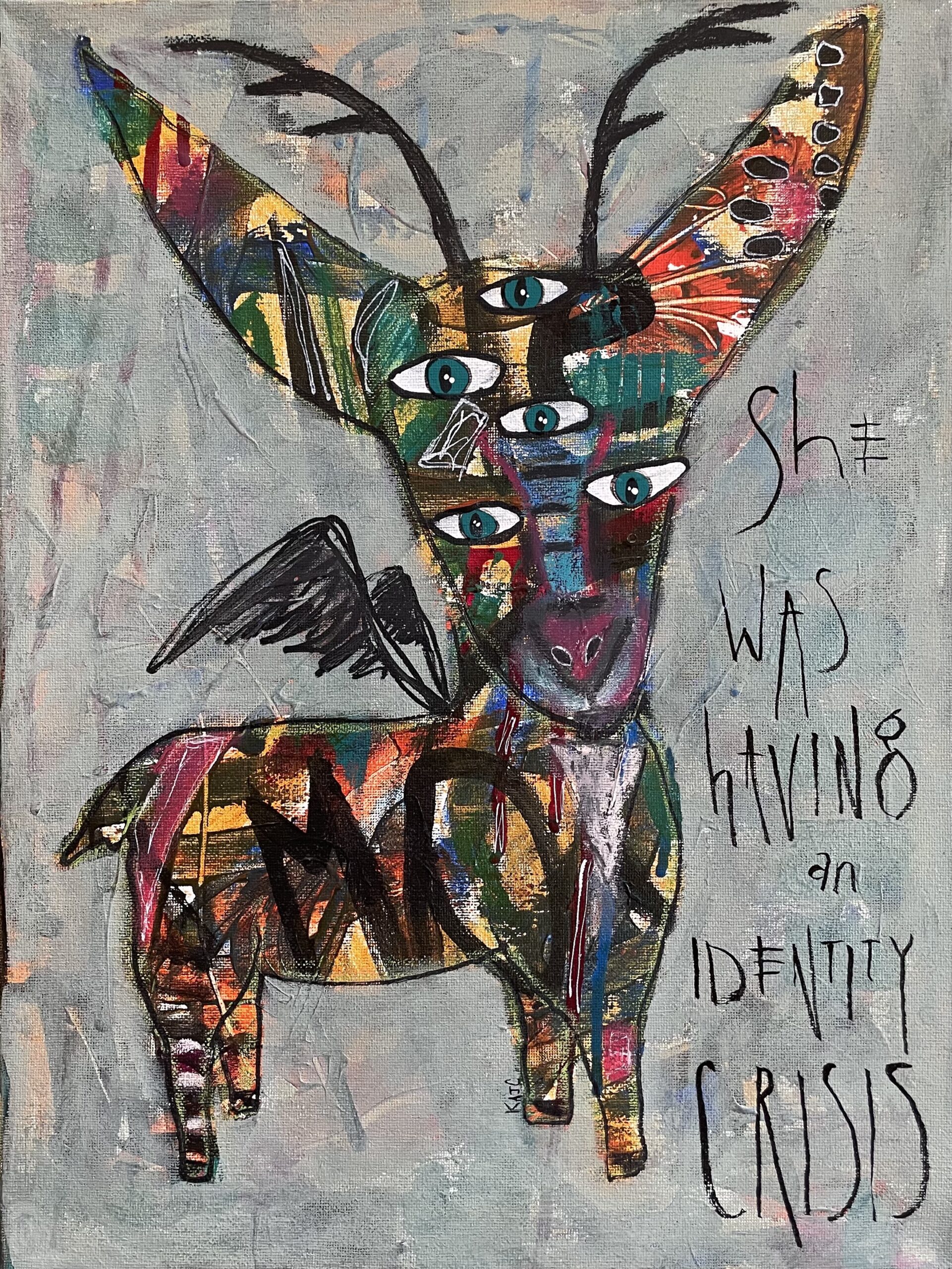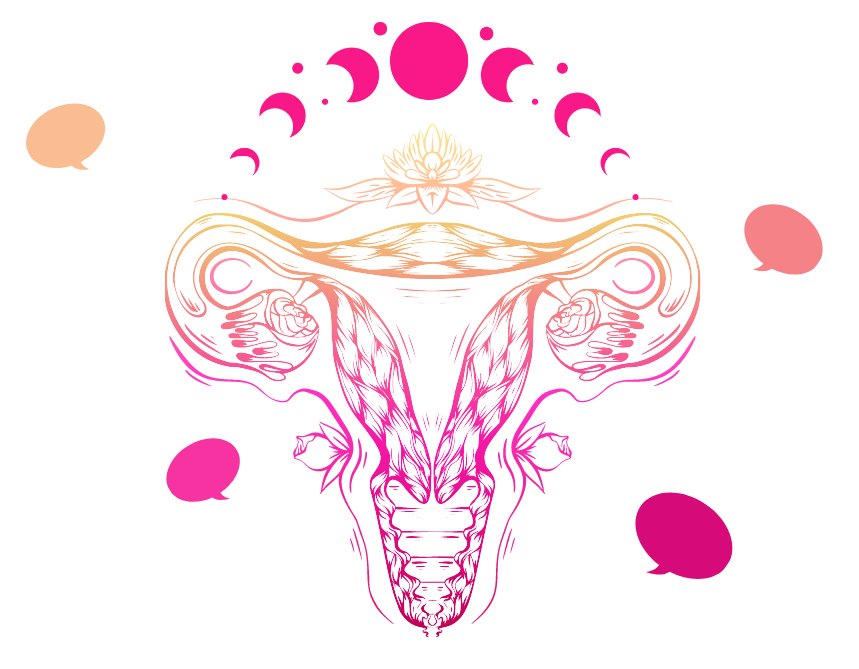Kelli Judkins-Cooper
Kelli Judkins-Cooper is a native New Mexican. She holds a Bachelor of Arts degree in Psychology from the University of New Mexico and lives and works in the UNM area. She has shown in many art spaces around Albuquerque, Corrales, and Santa Fe. Kelli’s work has a whimsical style and poignant voice. She brings the viewer in by connecting through relatable characters and shared emotional experience.
You can find Kelli's work here - www.instagram.com/kellijc33/.
These two pieces are for this exciting and much needed show on Menopause. They relate to the topic as I created them while in later stages of peri menopause (I am aware only in retrospect) and I created them to visually express what I was experiencing at the time. While I haven’t had a lot of physical symptoms, I have been very aware of mental/emotional/psychic shifts within me and how I experience and move in the world. Two very prominent themes for me have been my decreased tolerance for bullshit and my shifting identity(both internally and how I’m viewed in the world).

Accommodation - $200
Acrylic on canvas. Unframed.
16 x 12 inches
This piece can be purchased through the National Minority Health Alliance's THEart Alliance. The Buy Now button will take you there.
Identity Crisis - $200
Acrylic on canvas. Unframed.
16 x 12 inches
This piece can be purchased through the National Minority Health Alliance's THEart Alliance. The Buy Now button will take you there.

Support Menopause Awareness
1.3 Million Women Enter Menopause Each Year. We Have to Stop Ignoring Them.
Glamour, October 2020
What is Menopause?
Actual menopause is when a woman/person has gone 12 consecutive months without a menstrual period. Menopause is often used as an umbrella term for the 3 stages of menopause: perimenopause, which can begin 8-10 years prior to menopause; menopause; and postmenopause, where symptoms can continue to be experienced for a decade or more. All 3 stages can be marked by a variety of symptoms (some research has suggested up to 34 different symptoms) or, for some women/people, no symptoms, or very mild symptoms.
About This Project
When I first started thinking about this project I didn’t see a lot of people talking about menopause. Heck, when I started experiencing perimenopause, my first doctor chalked things up to stress at work and prescribed anti-anxiety medication. This was a woman doctor too. Eventually I found a doctor who knew about menopause and was fortunate to have my own support group born out of a program run by a company called Gennev.
Now, a few years later there are several FemTech companies focused on menopause and women’s health. I see more and more female celebrities talking about menopause and their experiences, including Oprah, Michelle Obama, Gwyneth Paltrow, and more.
This is wonderful, but not everybody pays attention to celebrities. Not everyone can afford to get healthcare or education from private pay FemTech companies. So I wanted to help raise awareness about this topic that every woman who is fortunate enough to live long enough will experience. I also wanted to share women’s voices on the topic. And I wanted to do it in a way that resonates with me and that is art. I was fortunate that my proposal also resonated with the City of Albuquerque’s UETF Resiliency Residency committee! More recently, The National Minority Health Association has also signed on to help support the project.
Menopause and Work
“Menopause often intersects with a critical career stage. It usually occurs between ages 45 and 55 – which is also the age bracket during which women are most likely to move into top leadership positions (technically 53.46 years old for a CEO). Since menopause generally lasts between seven and 14 years, millions of postmenopausal women are coming into management and top leadership roles while experiencing mild to severe symptoms such as depression, anxiety, sleep deprivation and cognitive impairment, to name a few. A recent Korn Ferry analysis finds that women hold only around 25% of C-suite positions. If we want to continue to move the needle on the number of women in leadership roles and maintain their valuable contributions to a company’s bottom line, I believe we need to be more open about what menopause is and how it affects both individuals and organizations.”
“It’s Time to Start Talking About Menopause at Work” by Jeneva Patterson for Harvard Business Review
Other Headlines and Resources
- It's Time to Start Talking About Menopause at Work, Harvard Business Review, February 2020
- 1.3 Million Women Enter Menopause Each Year. We Have to Stop Ignoring Them., Glamour, October 2020
- Why We Should Celebrate the Joys of Menopause, AARP, May 2020
- Don’t hide the menopause – celebrate its creative power, The Guardian, August 2018










